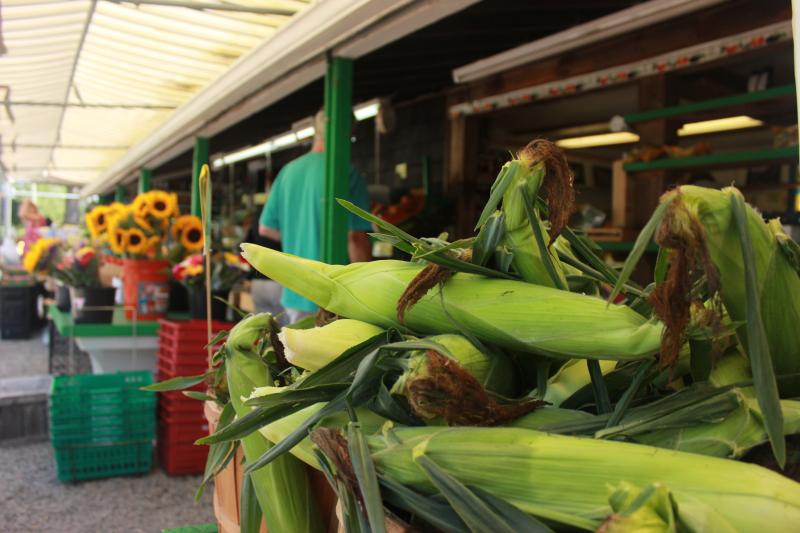Water woes: surviving the drought
Sweet corn is now sold at farm stands for low prices, but the effort it took to get them there during a six-month long drought remains unseen to shoppers.
Stop and talk to the farmers and you'll understand their woes.
“I don't know where to begin. It's been very stressful keeping everything alive,” said Saba Nessralla, owner of Nessralla Farmstand and Greenhouses on Sandwich Road in Wareham.
Nessralla has had to water his plants and flowers twice a day to keep them alive, and his wife Ali said the water bill will be very high.
Thankfully, they are connected to the town water, and thankfully, Wareham is connected to the second largest aquifer in the state.
Though most of Massachusetts is under drought warning or advisory (Wareham included), Central and Northeast Massachusetts have declared drought status.
This has happened over the course of six months, and according to Daniel Seiger, Assistant Secretary for Energy and Environmental Affairs, “It's gotten progressively worse.”
Nessralla has felt the affects of the drought since May, but it really began with low snowfall in the winter.
“Where a lot of water comes from is the snow melt,” said Seiger. “Add lack of precipitation on top of it and you have a drought.”
It's only come about three times this season and it's the one thing the Nessrallas are waiting for: rain.
Their wish was granted with a tropical storm Hermine.
Hurricane Hermine, which made landfall early on Friday and affecting Florida, Georgia and the Carolinas while moving north, weakened into a tropical storm hitting Wareham with gusts of wind up to 70 miles per hour and thunderstorms.
“This hurricane that's coming, we're happy it's coming but we don't want any damage,” said Saba two days before the storm came.
Saba wasn't the only one looking forward to the tropical storm that hit Wareham on Labor Day.
“Any little bit of rain that we get is helping,” said Jason Zimmer, southeast district manager from the Division of Fisheries and Wildlife.
Though low levels of water, one of the basic requirements for life, stresses the habitats of wildlife, Zimmer said: “Most of the wildlife have evolved and are pretty adaptable... it's gonna recover quickly.”
As far as Onset Water Superintendent Paul Bokoski is concerned, the drought hasn't affected the Onset Water Department at all.
"We're in great shape," he said. "Levels have dropped a little bit, but we're still in good shape."
Keeping residents safe in face of the drought, however, is another issue.
Though there hasn't been an increase in brush fires this year, Wareham Fire Department's Assistant Fire Chief Patrick Haskell said it's taken a lot more effort to put the fires out.
“The brush fires that we've had and gone to have required more personnel and equipment because we've had to use more water than normal," said Haskell.
He said the fires sink deep into the earth since there is a lack of moisture in the soil and thousands of gallons of water are used to put the fires out.
“We've had instances where we put it out and the next day, it's smoldering,” he said. “It'll pop up underneath somewhere else.”
Even though Wareham has kept its drought status at bay with a large aquifer, Andrew Reid, superintendent of the Wareham Water Department, said: “We're not immune, but we're in an okay position.”
Residents can help in the effort by conserving water.
According to Reid, irrigation for lawns, plants, and garden could be up to 25 percent of one's water bill. To conserve water, he suggested following an “odd-even” watering system: houses with odd numbers on a street could water its plants one day, and those with even numbers could water the next day.
Other ways include taking shorter showers, running the dishwasher when it's completely full, doing a full load of laundry, and being conscious of using water in general.
To put things in perspective, Reid quoted Benjamin Franklin in a Facebook post about water conservation: “When the well is dry, we know the value of water.”















